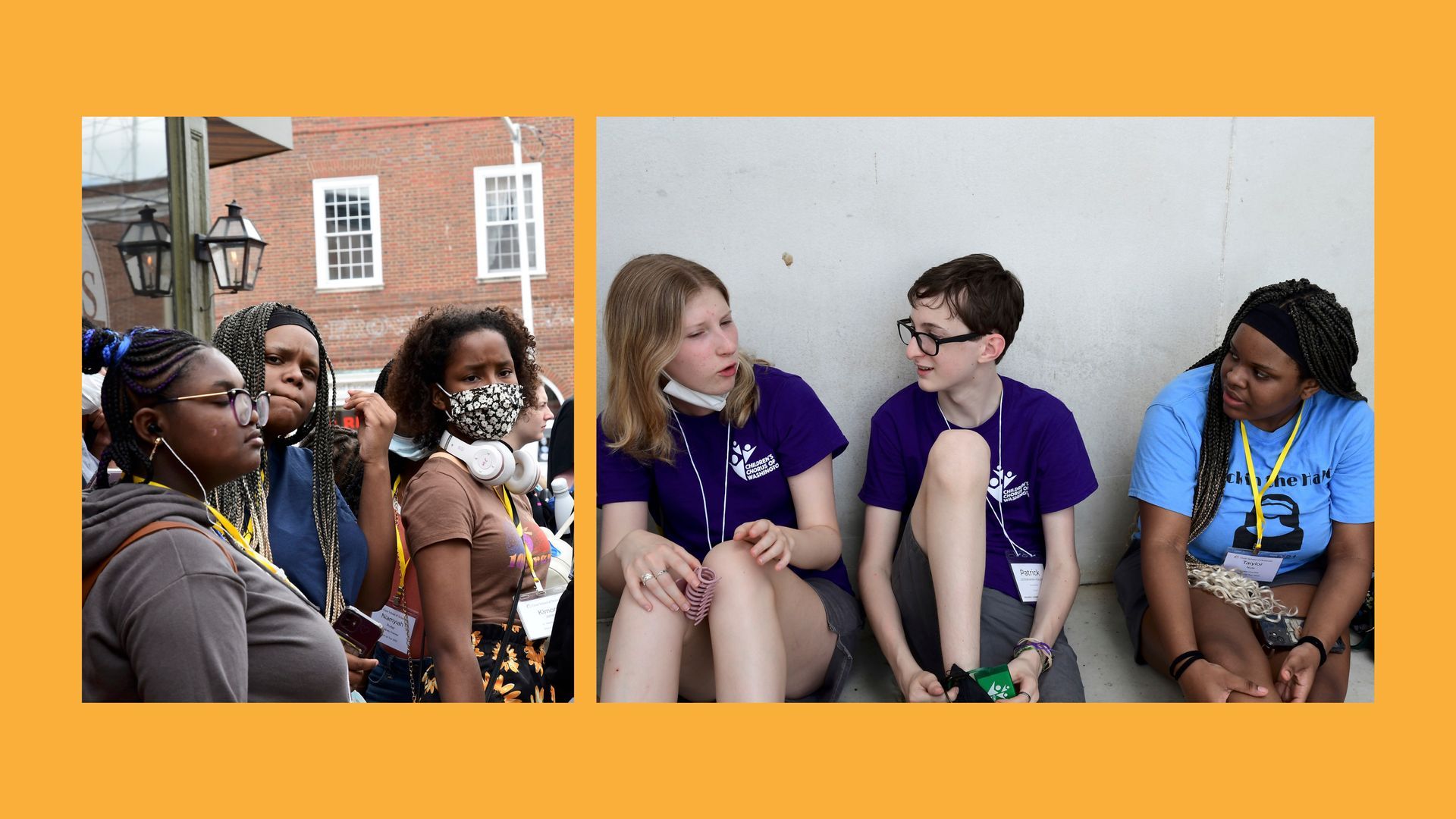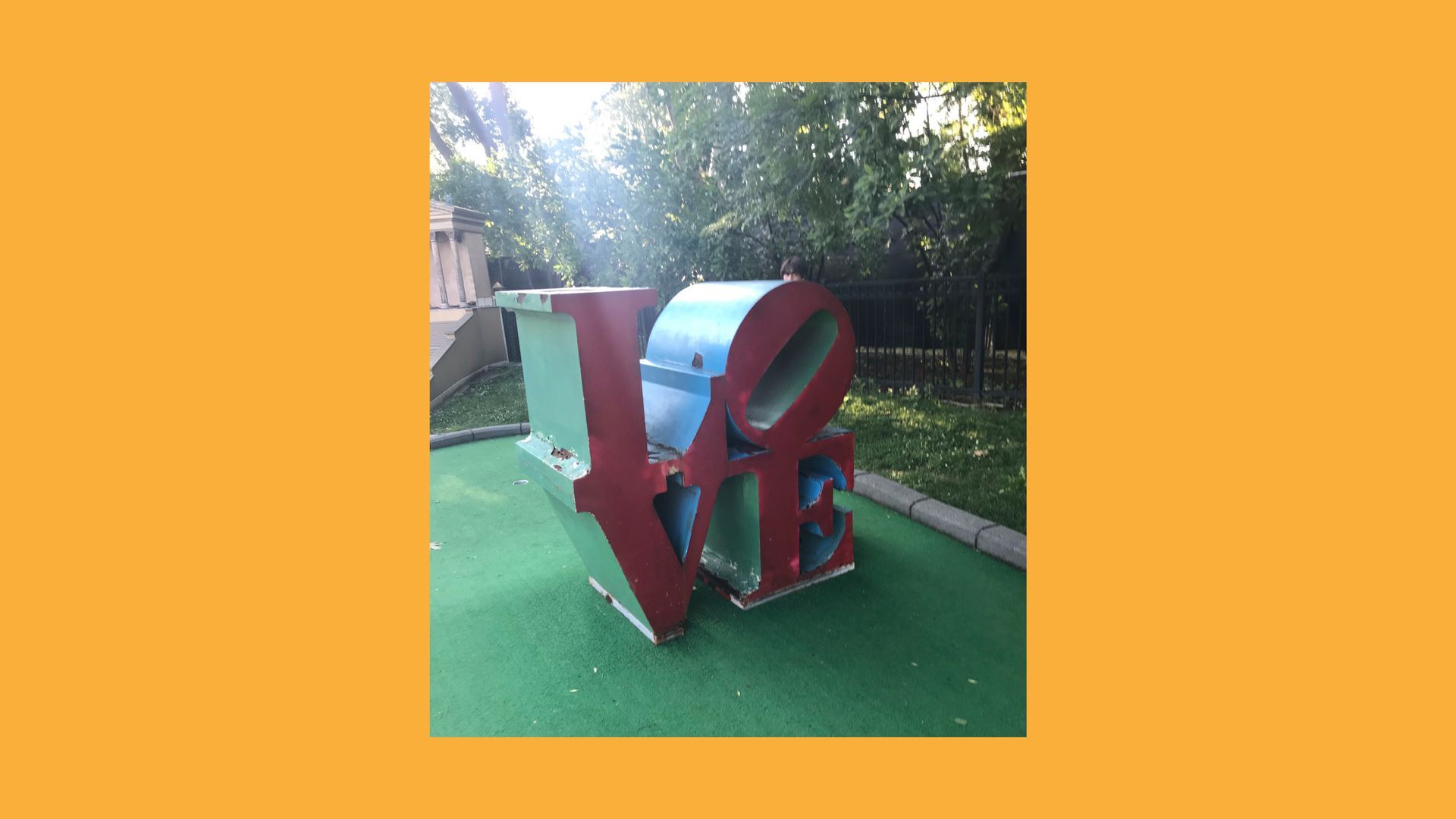CCW's Mission in "Stand Up": Shared Humanity
By CCW's Executive Director, Betsy Bates
We want to close out and commemorate Black History Month with a week of reflections on last summer’s Stand Up: Harriet Tubman Tour. This is the third of five posts.
One reason we tour is to experience other cultures and musical traditions, because the more we learn about how we are different, the more we realize we have in common. The Stand Up Tour was special because we stayed close to home, meaning the cultural differences we encountered were the ones we must navigate daily as citizens of the “melting pot” that is the United States.
CCW’s demographics are changing as we become more racially, geographically, and economically diverse in our quest to truly become the children’s chorus for ALL of Washington. However, we are currently a majority White-identifying chorus. The Choir School of Delaware (CSD) is a primarily Black and Brown chorus. We intentionally partnered with CSD to create a unique opportunity for both choruses to interact, enjoy common experiences, and bridge across difference.
Throughout the tour, there were many instances when it was obvious that we were all feeling the same way. There were other times when our shared humanity was revealed because we sought to understand something difficult, or an interaction reminded us that we are connected despite differences in the moment.
Three anecdotes illustrate encounters that were unplanned, but which created rich opportunities for understanding each other and deepened our collective experience of the tour.
The first moment occurred in Upper Darby, PA as we visited the apparently abandoned former home of Thomas Garrett, abolitionist and ally of Harriet Tubman. As our students approached the house, they noticed modern-day signs in the window that said "If you can read this, you are trespassing." This caused a great deal of concern and we ultimately had to leave the property. Back on the bus, Dr. Green shared this reflection.
The second reflective moment happened among staff on Sunday night. The chaperones from both choruses gathered for some social time after lights out. After some collegial commentary, someone from the Choir School asked, "Are your kids afraid of our kids?"

This conversation opened the door to discuss how we could create ways for the two groups of students to interact and find common ground the next day, even though it raised some challenging and uncomfortable questions that we all had to confront together. We walked away from those conversations with a stronger connection and more willingness to work together to understand each other's perspectives.
The third moment of discovery happened on Monday. A man entered the church where we were rehearsing. He told one of our staff his son had lost his AirPods at the park the previous night, and he had tracked them to the venue. He demanded they be returned, or he would involve the police.
He was accusing a Choir School student of stealing them, despite there being nearly three times as many CCW students in the park during that same time. No one from either chorus had mentioned finding AirPods.
The Choir School of Delaware conductor spoke to both groups of students and explained the situation, asking for the person who had them to turn them in discreetly - no one had to know, we just want to do the right thing. They were turned in immediately.

The man came back to retrieve them, and our staff told him what had happened: A Choir School student had lost his phone that night and students from both choruses looked all over the park for it. One found the AirPods, which had now been returned. The man began to walk away, turned back, and gave us $20 for the person who turned them in.
In the first example, CCW students grappled with their own discomfort and learned to identify with the freedom seekers. In the second, our two organizations made the choice to talk about the discomfort and uneasiness within the small traveling community we had built, and to work together to find solutions and provide an opportunity for our singers to connect with each other. In the third, we worked together for a fair outcome where bias from “outside” was overt and threatening.
These anecdotes represent a fraction of the kind of lessons learned on tour. Travel teaches many things, and the Stand Up Tour was eye-opening almost because it happened in familiar locales. By looking at local landmarks with new perspective, we gained a deeper appreciation of our shared history and our shared humanity.

